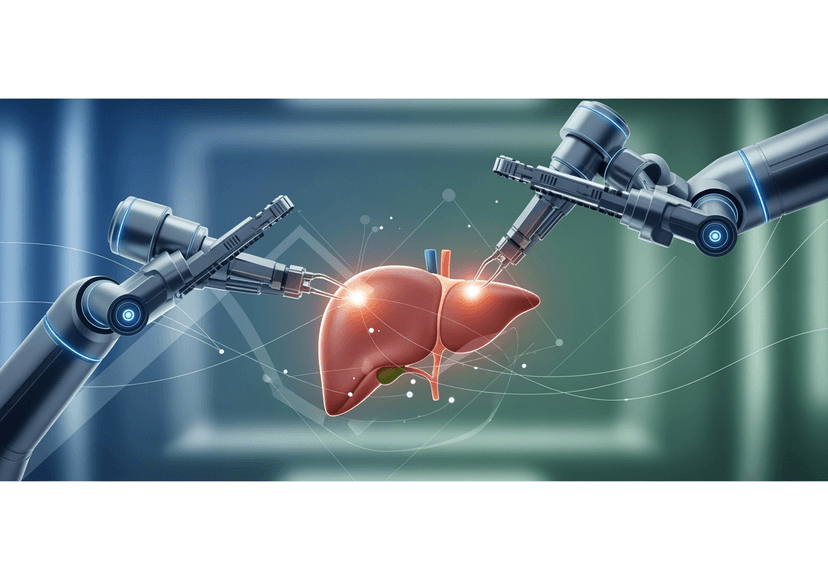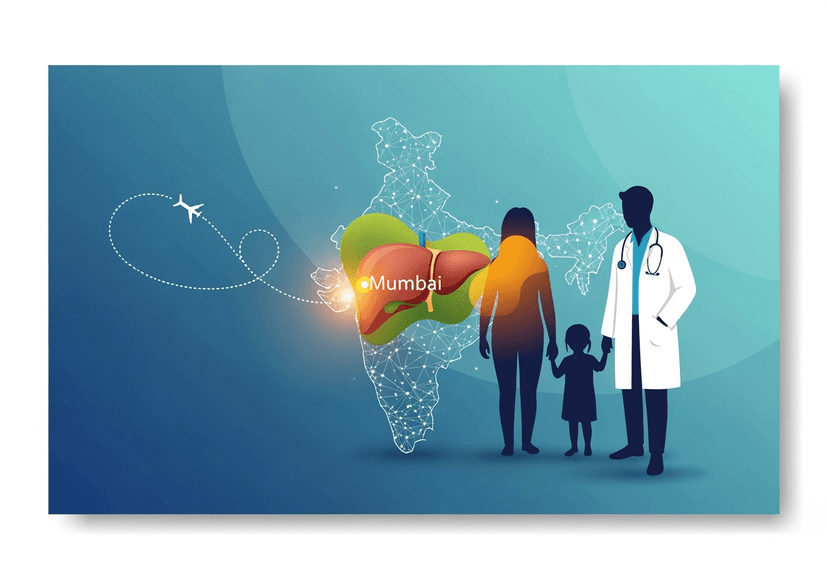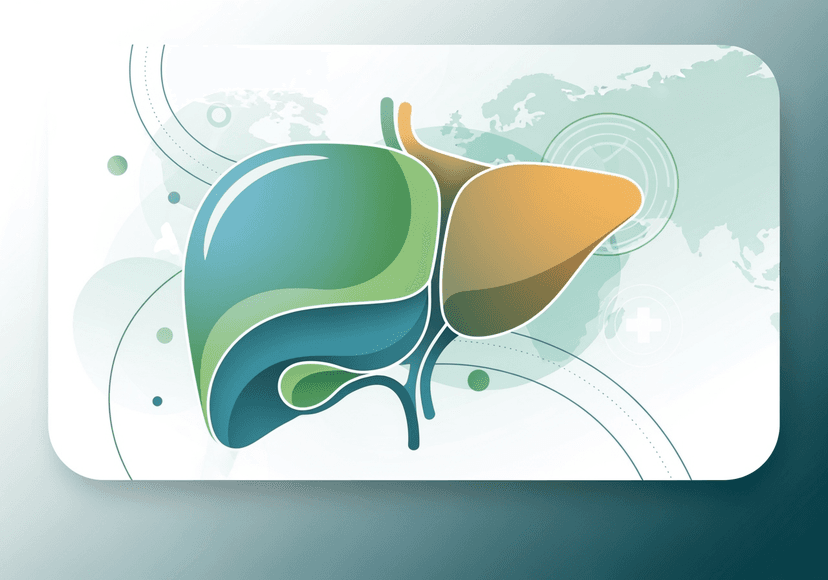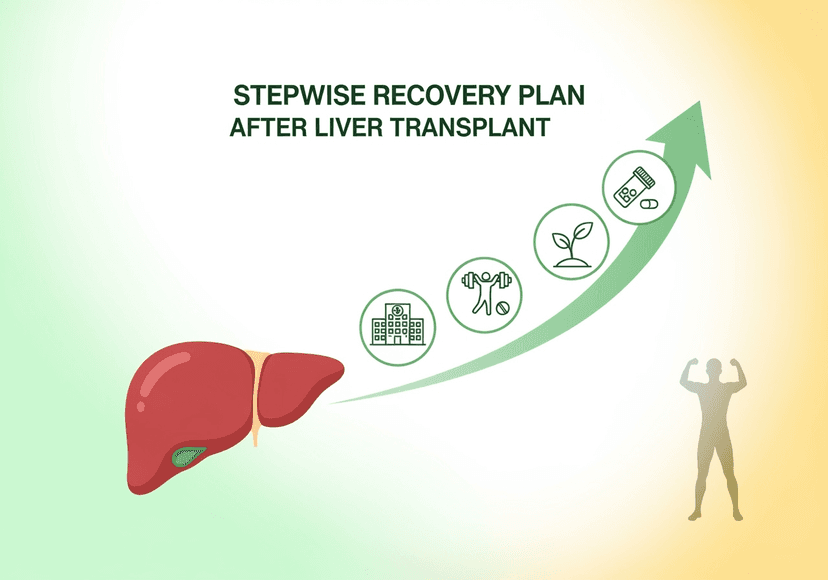
Frequently Asked Questions About Cancer Treatment
30 Oct, 2025
 Healthtrip
HealthtripWhat are the main types of cancer treatment available?
Cancer treatment has come a long way, offering a range of options tailored to each individual's unique situation. Surgery remains a cornerstone, particularly for localized tumors, and skilled surgeons at hospitals like Fortis Memorial Research Institute, Gurgaon, expertly remove cancerous tissue while preserving healthy surrounding areas. Radiation therapy uses high-energy rays to target and destroy cancer cells, often employed at facilities like Quironsalud Proton Therapy Centre in Madrid for precise treatment. Chemotherapy involves medications that travel throughout the body to kill cancer cells, a systemic approach provided at many leading hospitals. Targeted therapy is a more recent development, using drugs that specifically attack cancer cells based on their genetic makeup, minimizing harm to normal cells, this method is available at hospitals like National Cancer Centre Singapore. Immunotherapy harnesses the power of your own immune system to fight cancer, showcasing remarkable results in some cases and you can find skilled doctors in immunotherapy treatment like the doctors at Singapore General Hospital. Hormone therapy is used for cancers that rely on hormones to grow, such as breast or prostate cancer. The best approach often involves a combination of these treatments, carefully orchestrated by a multidisciplinary team of specialists, ensuring you receive personalized and comprehensive care. At Healthtrip, we can connect you with these experts and facilities, helping you navigate the complex world of cancer treatment with confidence.
Most popular procedures in India
How do I choose the right cancer treatment plan?
Choosing the right cancer treatment plan is a deeply personal decision, one that should be made in close collaboration with your medical team. Several factors come into play, including the type and stage of your cancer, its location, your overall health, and your personal preferences. Your oncologist will conduct thorough evaluations, including imaging tests and biopsies, to understand your cancer's unique characteristics. They'll then discuss the available treatment options, outlining the potential benefits and risks of each. Don't hesitate to ask questions – lots of them! Understanding the rationale behind each recommendation is crucial. Consider seeking a second opinion from a specialist at a renowned institution like The Royal Marsden Private Care, London, to gain additional perspectives. It's also important to factor in practical considerations, such as the treatment's impact on your daily life, potential side effects, and costs. Support groups and counseling can provide emotional support and help you cope with the decision-making process. Healthtrip can assist you in connecting with qualified medical professionals and accessing comprehensive information, empowering you to make informed choices that align with your values and goals. Remember, you're not alone in this journey; we're here to support you every step of the way.
Wellness Treatments
Give yourself the time to relax
Lowest Prices Guaranteed!

Lowest Prices Guaranteed!
What are the common side effects of cancer treatment, and how can they be managed?
Cancer treatments, while effective at targeting cancer cells, can sometimes affect healthy cells as well, leading to various side effects. Chemotherapy, for example, can cause nausea, fatigue, hair loss, and mouth sores due to its systemic nature. Radiation therapy can cause skin irritation, fatigue, and specific side effects depending on the treatment area. Immunotherapy, while generally well-tolerated, can sometimes trigger autoimmune reactions. However, advancements in supportive care have greatly improved the management of these side effects. Medications can help alleviate nausea and pain, while special mouthwashes can soothe mouth sores. Techniques like scalp cooling can minimize hair loss during chemotherapy. Fatigue management strategies include exercise, proper nutrition, and adequate rest. It's crucial to communicate openly with your medical team about any side effects you experience so they can adjust your treatment plan or provide additional support. Many hospitals, such as Vejthani Hospital in Bangkok, offer comprehensive supportive care programs to help patients manage side effects and maintain their quality of life. Complementary therapies like acupuncture and massage can also provide relief. Remember, managing side effects is an integral part of your cancer treatment journey, and proactive communication with your healthcare providers is key. Healthtrip can connect you with resources and specialists who can help you navigate these challenges and improve your overall well-being.
How can Healthtrip help me find the best cancer treatment?
Healthtrip is your trusted partner in navigating the complex world of cancer treatment, offering personalized support to help you find the best possible care. We understand that every cancer journey is unique, and we're dedicated to providing information and resources tailored to your specific needs. Our platform connects you with a global network of leading hospitals, such as Hisar Intercontinental Hospital in Istanbul, and experienced oncologists specializing in various cancer types. We offer comprehensive profiles of medical professionals, including their qualifications, expertise, and patient reviews, empowering you to make informed decisions. Healthtrip can assist you with arranging consultations, coordinating medical travel, and accessing cutting-edge treatments. We also provide guidance on financial planning and insurance coverage, ensuring that you can focus on your health without unnecessary stress. Our team of dedicated patient care managers is available to answer your questions, provide emotional support, and advocate for your needs. Whether you're seeking innovative therapies, a second opinion, or simply a helping hand, Healthtrip is here to guide you every step of the way. We believe that everyone deserves access to the best possible cancer care, and we're committed to making that a reality for you.
What questions should I ask my doctor about my cancer treatment options?
When discussing cancer treatment options with your doctor, it's essential to be prepared with a list of questions to ensure you fully understand your situation and can make informed decisions. Start by asking about the specific type and stage of your cancer, as this will influence the treatment approach. Inquire about the goals of treatment – is it to cure the cancer, control its growth, or alleviate symptoms? Ask about all available treatment options, including their potential benefits, risks, and side effects. Don't hesitate to ask for clarification on medical jargon or technical terms. Understand the expected duration of treatment and how it will impact your daily life. Ask about the doctor's experience in treating your specific type of cancer and the success rates associated with different treatment options at their facility or a facility like Saudi German Hospital Cairo, Egypt. Inquire about supportive care services available to manage side effects and improve your quality of life. Ask about the costs associated with treatment and available financial assistance programs. Most importantly, create an open and honest dialogue with your doctor, expressing your concerns and preferences. Remember, you are an active participant in your cancer care, and your questions are valuable. Healthtrip can help you prepare for these conversations by providing a list of suggested questions and resources to enhance your understanding of cancer treatment.
Where Can I Receive Cancer Treatment?
Embarking on a cancer treatment journey can feel overwhelming, especially when considering the multitude of options available worldwide. Knowing where to start looking for the best possible care is crucial for your peace of mind and overall well-being. Healthtrip understands this, and we're here to guide you through the landscape of cancer treatment centers, ensuring you find a facility that aligns with your specific needs and preferences. From bustling metropolitan hospitals to serene, specialized clinics, the world offers a diverse range of healthcare institutions equipped to combat cancer. Factors to consider include the hospital's expertise in your specific type of cancer, the availability of advanced technologies and treatment modalities, the experience and credentials of the medical team, and the overall support services provided to patients and their families. Remember, choosing a cancer treatment center is a deeply personal decision, and it's essential to gather as much information as possible to make an informed choice.
When exploring your options, consider institutions like Fortis Memorial Research Institute in Gurgaon, India, known for its comprehensive cancer care programs and cutting-edge technology. Also, consider Vejthani Hospital in Bangkok, Thailand, which offers a multidisciplinary approach to cancer treatment with a focus on personalized care. In Turkey, Memorial Bahçelievler Hospital and Memorial Sisli Hospital in Istanbul are renowned for their advanced oncology departments and experienced medical professionals. Closer to home, Saudi German Hospital Cairo in Egypt provides quality cancer treatment services with a commitment to patient comfort and well-being. Each of these hospitals, accessible through Healthtrip, offers a unique blend of expertise, technology, and patient-centered care, making them viable options for individuals seeking top-tier cancer treatment. Ultimately, the best treatment location depends on your individual circumstances, preferences, and the specific type of cancer you are facing.
Healthtrip simplifies this process by connecting you with a network of accredited hospitals and cancer specialists around the globe. We provide detailed information about each facility, including their areas of expertise, treatment options, patient reviews, and cost estimates. Our goal is to empower you with the knowledge and resources you need to make the best decision for your health and future. We understand that navigating the world of cancer treatment can be daunting, and we are committed to providing you with personalized support and guidance every step of the way. So, take a deep breath, explore your options, and remember that you are not alone in this journey; Healthtrip is here to help you find the right path forward.
Why is a Specific Cancer Treatment Recommended?
Understanding the "why" behind a recommended cancer treatment plan is just as important as knowing the "what." It's natural to feel anxious and uncertain when faced with the prospect of cancer treatment, and a clear explanation of the rationale behind the chosen approach can significantly alleviate these concerns. The decision-making process for cancer treatment is a complex one, involving a careful evaluation of numerous factors that are unique to each patient. These factors include the type and stage of cancer, the genetic makeup of the tumor, the patient's overall health and medical history, and their personal preferences and values. Your oncologist will meticulously analyze all of this information to develop a treatment plan that is tailored to your specific situation and offers the best chance of achieving a positive outcome.
The specific characteristics of your cancer play a critical role in determining the most appropriate treatment. For example, certain types of cancer respond better to chemotherapy, while others are more effectively treated with radiation therapy or surgery. The stage of your cancer, which refers to the extent to which it has spread, also influences treatment decisions. Early-stage cancers may be treatable with localized therapies like surgery or radiation, while more advanced cancers may require systemic treatments like chemotherapy or immunotherapy. Furthermore, advancements in cancer research have led to the development of targeted therapies that specifically attack cancer cells while sparing healthy tissue. These therapies are often recommended based on the genetic profile of the tumor, allowing for a more personalized and effective approach to treatment.
Your overall health and medical history are also crucial considerations. Your oncologist will assess your physical condition, any pre-existing medical conditions, and your ability to tolerate the potential side effects of treatment. They will also take into account your personal preferences and values, ensuring that the treatment plan aligns with your goals and priorities. Perhaps you are concerned about maintaining your quality of life during treatment, or you may prefer a more aggressive approach to maximize the chances of a cure. Open and honest communication with your oncologist is essential to ensure that your treatment plan reflects your individual needs and preferences. Healthtrip encourages patients to actively participate in the decision-making process and to ask questions until they feel fully informed and comfortable with the recommended treatment approach. Remember, understanding the "why" empowers you to take control of your health and embark on your cancer treatment journey with confidence.
Who Will Be On My Cancer Treatment Team?
Facing a cancer diagnosis often brings a sense of isolation, but it's vital to remember that you're not alone. A dedicated team of healthcare professionals will be by your side, providing comprehensive care and support throughout your treatment journey. Understanding the roles and responsibilities of each team member can help you navigate the complexities of cancer care and feel more empowered in your own treatment. Your cancer treatment team is a multidisciplinary group, meaning it comprises specialists from various fields who work together to develop and implement your personalized treatment plan. The composition of your team may vary depending on the type and stage of your cancer, as well as the specific services offered by the treatment center, but there are some key players who are typically involved.
The oncologist is often considered the leader of the cancer treatment team. This physician specializes in the diagnosis and treatment of cancer and will oversee your entire treatment plan. You’ll also find a surgical oncologist who performs surgeries, and a radiation oncologist, who will administer radiation therapy if required. Depending on your specific needs, your team may also include a medical oncologist, who specializes in chemotherapy and other systemic therapies. Radiologists play a crucial role in diagnosing and monitoring cancer through imaging techniques such as X-rays, CT scans, and MRIs. Pathologists analyze tissue samples to confirm the diagnosis of cancer and determine its characteristics. Nurses are integral members of the cancer treatment team, providing direct patient care, administering medications, and offering emotional support. They are often the first point of contact for patients and their families. Social workers and counselors provide emotional support, counseling, and assistance with practical matters such as financial planning and transportation. Registered Dietitians provide nutritional guidance to help patients maintain their strength and energy during treatment.
Healthtrip recognizes the importance of a strong and supportive cancer treatment team. We partner with hospitals like Fortis Hospital, Noida, and Max Healthcare Saket, which boast highly skilled and compassionate multidisciplinary teams dedicated to providing the best possible care for cancer patients. Don't hesitate to ask your healthcare team about their experience and qualifications. Building a strong rapport with each member of your team is essential for effective communication and shared decision-making. They are there to answer your questions, address your concerns, and provide you with the information and support you need to navigate your cancer journey with confidence. And remember, you are an integral part of the team as well, and your voice and preferences matter.
Also Read:
How Do Common Cancer Treatments Work?
Understanding how cancer treatments work can be empowering. It helps you feel more in control of your journey and allows you to have more informed conversations with your medical team. Let's break down some of the most common approaches. Surgery, often the first line of defense for solid tumors, aims to physically remove the cancerous tissue. Think of it as a skilled carpenter carefully extracting a damaged section of wood. Chemotherapy, on the other hand, is like a systemic weed killer. It uses powerful drugs to target rapidly dividing cells, which include cancer cells. However, because it affects all rapidly dividing cells, it can also impact healthy cells, leading to side effects like hair loss and nausea. Radiation therapy is like a focused beam of energy that damages the DNA of cancer cells, preventing them from growing and spreading. It's often used to target specific areas, minimizing damage to surrounding tissues. Targeted therapy is a more precise approach. Imagine it as a guided missile that zeroes in on specific molecules or pathways involved in cancer growth. This can be a more effective and less toxic option for certain types of cancer. Immunotherapy is the rising star of cancer treatment. It harnesses the power of your own immune system to fight cancer. It's like training your body's soldiers to recognize and destroy cancer cells. Each of these treatments works differently, and the best approach often involves a combination tailored to your specific cancer, its stage, and your overall health. Hospitals like Fortis Memorial Research Institute in Gurgaon and Memorial Sisli Hospital in Istanbul are known for their comprehensive cancer treatment approaches, often combining various therapies to optimize outcomes.
Also Read:
Examples of Advanced Cancer Treatments
The field of cancer treatment is constantly evolving, with new and innovative approaches emerging regularly. Advanced cancer treatments offer hope for patients with complex or difficult-to-treat cancers. One exciting example is proton therapy, a type of radiation therapy that uses protons instead of X-rays. Protons can be precisely targeted to the tumor, minimizing damage to surrounding healthy tissues. QUIRONSALUD PROTON THERAPY CENTRE in Spain is a leading center for this advanced treatment. Another promising area is CAR-T cell therapy, a type of immunotherapy that involves modifying a patient's own immune cells to attack cancer cells. This therapy has shown remarkable results in treating certain types of leukemia and lymphoma. Gene therapy is another frontier in cancer treatment. It involves introducing genes into cancer cells to make them more susceptible to treatment or to directly kill them. Onco-lytic virus therapy uses specially engineered viruses to infect and destroy cancer cells while leaving healthy cells unharmed. These viruses can also stimulate the immune system to attack the cancer. Nanotechnology is also playing an increasing role in cancer treatment. Nanoparticles can be used to deliver drugs directly to cancer cells, improving their effectiveness and reducing side effects. Hospitals like Singapore General Hospital and National Cancer Centre Singapore are at the forefront of researching and implementing these advanced therapies. The options available depend on the specific type of cancer, its stage, and individual patient factors. Consulting with a specialized oncology team is crucial to determine the most appropriate and cutting-edge treatment plan.
Also Read:
How Can I Manage Side Effects of Treatment?
Dealing with the side effects of cancer treatment can be challenging, but there are many strategies to help you manage them and maintain your quality of life. Open communication with your healthcare team is key. Don't hesitate to report any side effects you're experiencing, no matter how minor they may seem. They can provide guidance and support to help you cope. Many side effects can be managed with medications. For example, anti-nausea drugs can help reduce nausea and vomiting, while pain relievers can help alleviate pain. Lifestyle modifications can also make a big difference. Eating a healthy diet, staying hydrated, and getting regular exercise (as tolerated) can help boost your energy levels and reduce fatigue. Complementary therapies, such as acupuncture, massage, and yoga, can also help manage side effects like pain, anxiety, and fatigue. It's important to discuss these therapies with your doctor to ensure they're safe and appropriate for you. Support groups can provide a sense of community and connection with others who are going through similar experiences. Sharing your feelings and experiences with others can be incredibly helpful. Hospitals like Vejthani Hospital in Bangkok and The Royal Marsden Private Care, London, offer comprehensive supportive care services to help patients manage side effects and improve their overall well-being. Remember, you're not alone in this. There are many resources available to help you cope with the challenges of cancer treatment. Healthtrip can connect you with hospitals and specialists who prioritize comprehensive care and support throughout your journey.
Also Read:
Conclusion
Navigating a cancer diagnosis and treatment plan can feel overwhelming, but remember that you're not alone. Armed with the right information and support, you can make informed decisions and take control of your health journey. From understanding how various cancer treatments work to exploring advanced therapies and managing side effects, knowledge is power. Hospitals worldwide, including those accessible through Healthtrip like Fortis Hospital, Noida, and Saudi German Hospital Cairo, offer cutting-edge treatments and comprehensive care. They bring together multidisciplinary teams to create personalized treatment plans, ensuring that each patient receives the best possible care tailored to their specific needs. Don't hesitate to ask questions, seek second opinions, and explore all available options. Healthtrip is here to connect you with the resources and expertise you need to make informed choices and navigate your cancer journey with confidence. Remember, hope and healing are possible, and a brighter future awaits.
Related Blogs

Healthtrip’s Transparency in Liver Transplant Pricing and Packages
Detailed insights into liver transplant – doctors, hospitals, technology, recovery,

Frequently Asked Questions About Liver Transplant
Detailed insights into liver transplant – doctors, hospitals, technology, recovery,

Advanced Robotic Technology Used in Liver Transplant
Detailed insights into liver transplant – doctors, hospitals, technology, recovery,

How Healthtrip Supports Foreign Patients for Liver Transplant in India
Detailed insights into liver transplant – doctors, hospitals, technology, recovery,

Top Medical Packages for Liver Transplant Offered by Healthtrip
Detailed insights into liver transplant – doctors, hospitals, technology, recovery,

Stepwise Recovery Plan After Liver Transplant
Detailed insights into liver transplant – doctors, hospitals, technology, recovery,










